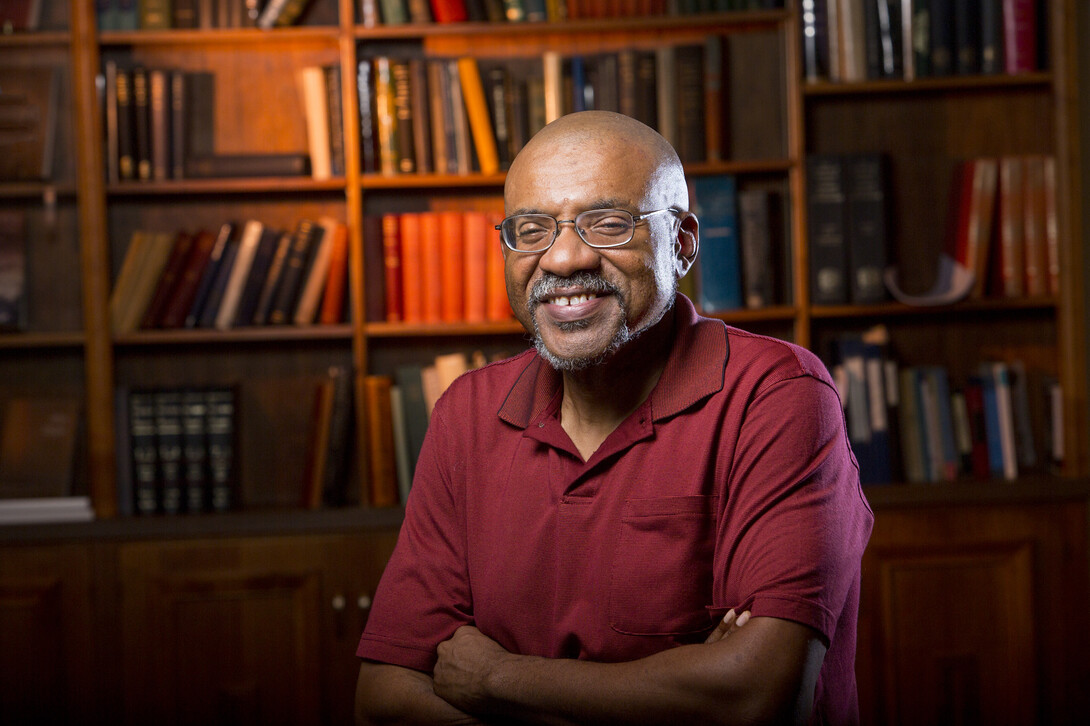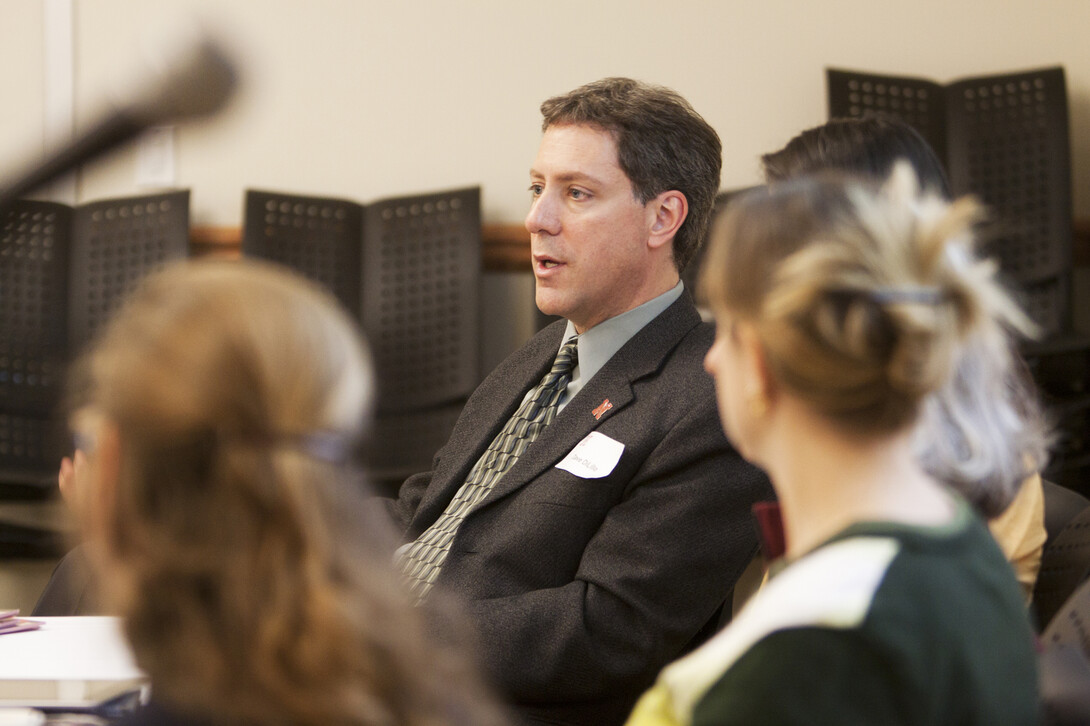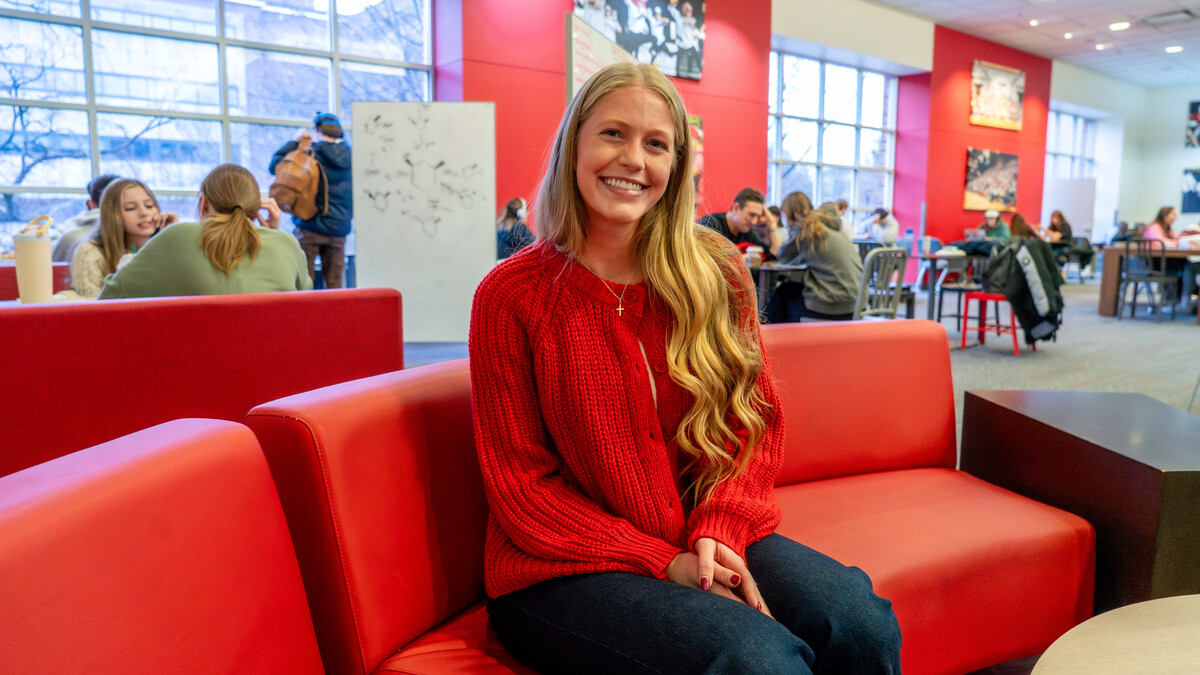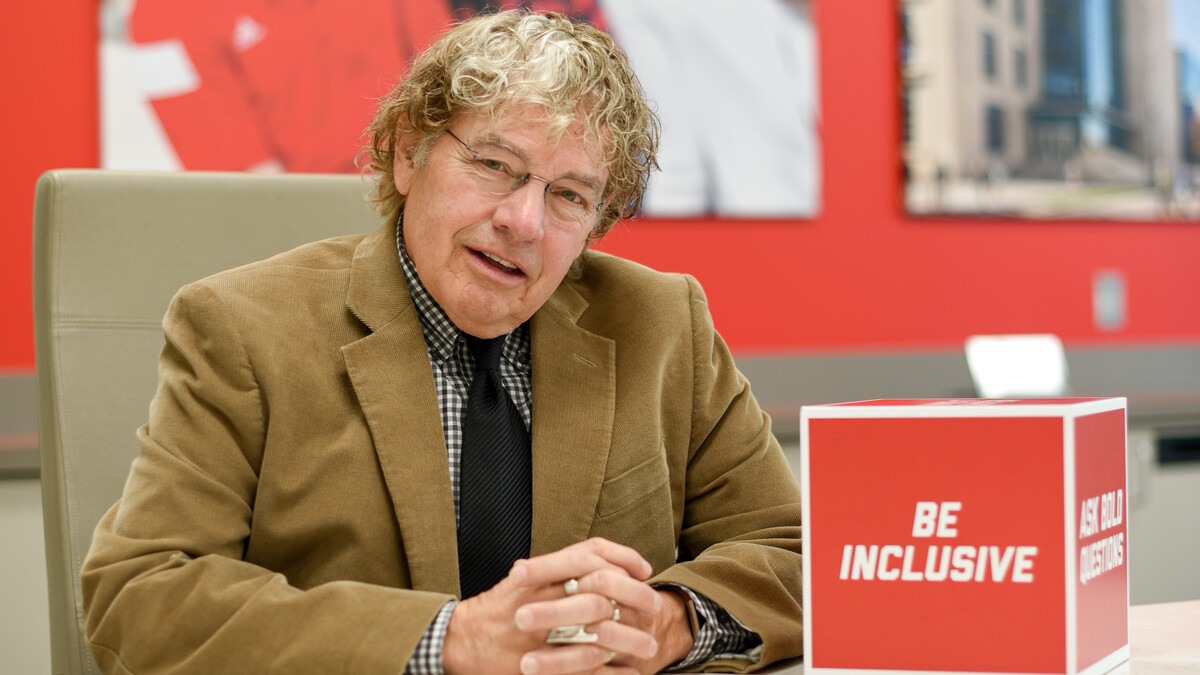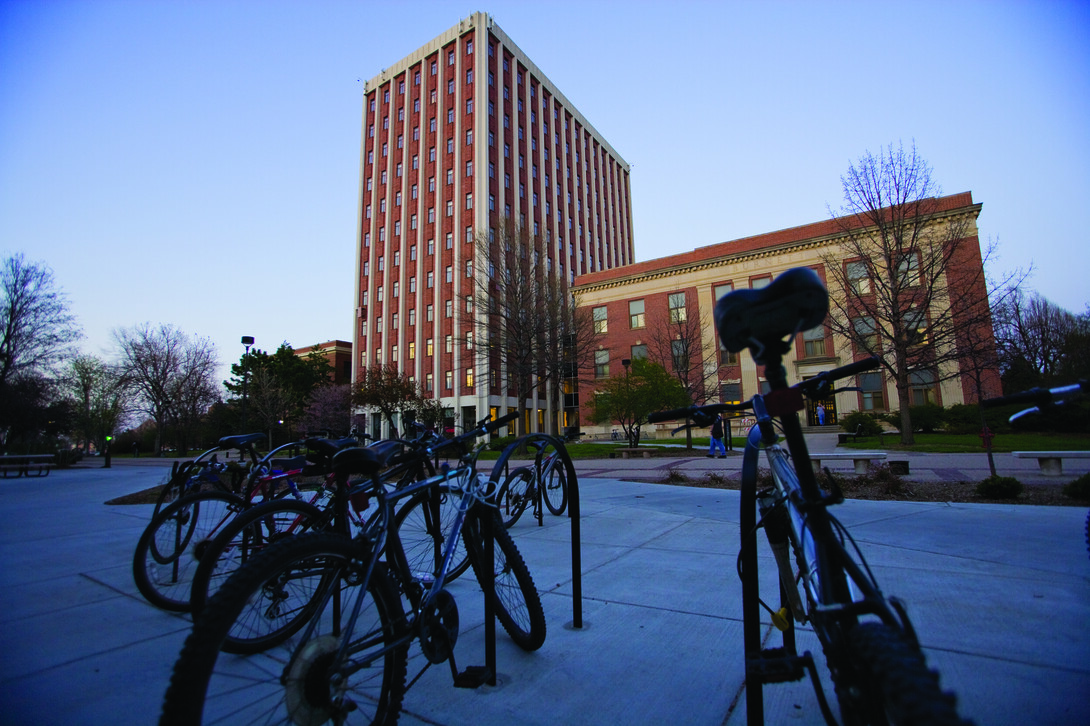
The College of Arts and Sciences recently recognized four faculty members for outstanding accomplishments in teaching and research.
Each year, the college awards one Hazel R. McClymont Distinguished Teaching Award and three Outstanding Research and Creative Activity Awards — one in each of the three subdivisions within the college: natural sciences, social sciences and humanities.
The recipients will be formally recognized during the college’s Celebration of Excellence on April 13.
This year’s recipient of the Hazel R. McClymont award is Petronela Radu, associate professor of mathematics. The McClymont Award, which is chosen by the faculty instructional development committee, honors exemplary teaching and carries a $6,000 stipend.
Radu joined the UNL faculty in 2004 as a research assistant professor. She received tenure in 2012. Her research interests focus on partial differential equations, continuum mechanics, peridynamics and calculus of variations. She was a Fulbright winner in 2013 and is the principal investigator on a National Science Foundation research grant that is allowing her to lead the “Math in the City” course. Radu designed “Math in the City” as an interdisciplinary course that promotes hands-on learning experiences through the use of mathematical modeling to understand current societal issues. The course is run through collaborations with local businesses, research center and government organizations.
“Dr. Radu’s record of teaching and dedication to educating our students is impressive and she is truly deserving of this award,” said Steve Goddard, interim dean of the college.
Faculty recognized with an Outstanding Research and Creative Activity honor are Kwame Dawes, Chancellor’s Professor of English and Glenna Luschei Editor of Prairie Schooner; David DiLillo, professor of psychology; and Patrick Dussault, professor of chemistry. The award was established to recognize Arts and Sciences faculty who have realized extraordinary accomplishments in the recent past. The award is not affiliated with the University of Nebraska’s systemwide Outstanding Research and Creative Activity Award.
“I am pleased that faculty members with such high-caliber work have been selected to represent the research accomplishments of the college,” Goddard said. “The work demonstrated by this year’s recipients will help set the standard for future awards.”
Dawes is the author of 17 books of poetry, along with publications of fiction, non-fiction, criticism and drama. He has won several awards including a Guggenheim Fellowship in 2012 and an Emmy in 2009. Most recently, he established the African Poetry Book Fund and Series, which publishes four new books of poetry from Africa each year and works to promote and advance the development and publication of the poetic arts through its book series, contests, workshops and seminars.
DiLillo is a member of the Clinical Psychology Training Program, which was recognized nationally in 2013 as the Association of Behavioral and Cognitive Therapies Outstanding Training Program. He is a clinical psychologist whose research focuses on understanding the causes and consequences of various forms of interpersonal trauma. For the past 10 years, DiLillo has received funding from the National Institutes of Health for his research conducted in the Trauma, Violence and Abuse Lab. Several of his students have been recognized by the NIH. DiLillo’s work has been published more than 80 times, including seven papers currently in press.
Dussault is the co-director of the Center for Nanohybrid Functional Materials. His research involves both fundamental and applied aspects of organic synthesis, the field that employs designed sequences of chemical reactions to construct target molecules. The Dussault lab is a world leader in the synthesis and chemistry of organic peroxides. These often unstable cousins of hydrogen peroxide are of interest as chemical reagents, agents of terrorism, short-lived intermediates in human bodies, and as potential therapeutics. Recent research by Dussault and co-workers has developed safer and more convenient methods for the use of ozone, a traditional and environmentally friendly oxidant that has remained limited in large-scale use by the intermediacy of unstable and sometimes explosive peroxides. Dussault’s research also applies the tools of synthesis within collaborative efforts addressing major problems in analytical chemistry, biology, medicinal chemistry, and materials science.

